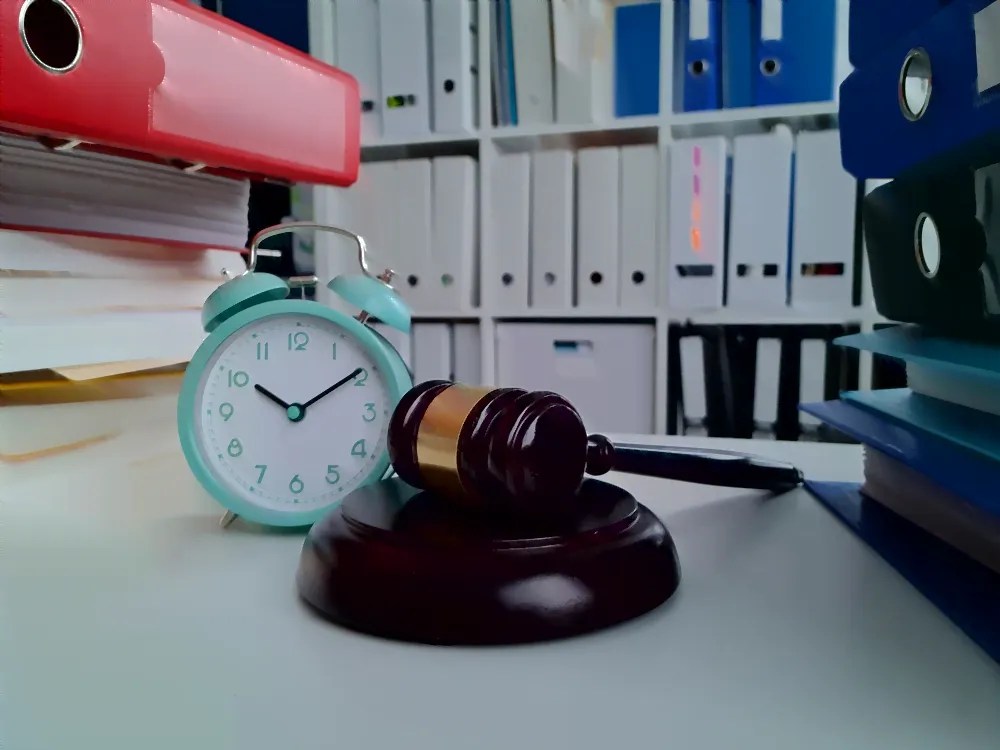If you have been involved in a vehicle accident in Laramie, Wyoming, the comparative fault law may make you eligible to receive compensation for your damages. In order to keep your case valid, however, you must file your claim within the statute of limitations. Working with a qualified auto accident lawyer can help ensure that you have all of the information you need before filing, including an understanding of all the applicable deadlines.
What Is the Statute of Limitations Regarding Vehicle Accidents?
The statute of limitations is a legal term for the period of time you have to file your vehicle accident claim before you can no longer press charges against the liable party. If you try to file a claim after the statute of limitations has expired, the court will most likely dismiss your case. The statute of limitations applies to anyone who was involved in a vehicle accident including:
- The driver of another vehicle
- Any passenger, including someone who was in the at-fault driver’s car
- A pedestrian
- A biker or motorcyclist
Personal Injury and Property Damage Claims
Any claim involving personal injury, damage to your vehicle, or the loss of any valuables you had in the car at the time of the crash is subject to a four-year statute of limitations. This period of time begins on the date the accident occurred.
Wrongful Death Claims
If you are filing a wrongful death claim on behalf of a loved one, the statute of limitations is two years. Unlike in the case of a personal injury or property damage, the clock starts ticking on the date the person died. In many cases, this date occurs after the date of the accident.
Special Rules Involving the Statute of Limitations
In some situations, the statute of limitations for vehicle accident cases may be longer or shorter than four years. If you are in doubt about how much time you have to file a claim or if you believe you may be approaching the deadline, it is best to get a lawyer’s input.
The Statute of Limitations for Minors
Wyoming has a special rule for minors seeking to file personal injury claims pertaining to damages incurred before their 18th birthday. According to the rule, any claims filed within three years of the minor turning 18 are acceptable.
The Statute of Limitations for People With Disabilities
Like minors, people with disabilities sometimes have more time to file their claims. If the disability is temporary, the claimant has three years to file, starting on the date that they are declared to have recovered from their disability.
Collisions With Government Employees
If the at-fault party in your accident was working for the government at the time of the crash, you will need to provide a formal written notice informing the government of your injury within two years of the accident. After the notice is filed, you must follow up with your personal injury claim within one year. Therefore, you essentially have a maximum of three years to pursue compensation for your damages.
Attempts by the At-Fault Party to Conceal Themselves
In rare cases, the driver who was at fault may try to evade charges by hiding from the authorities. The period of time during which a defendant in a personal injury case is at large does not count toward the statute of limitations.
Hidden Injuries
“Hidden” injuries are medical conditions that do not surface immediately when they are incurred. Car accidents often result in hidden injuries because the body’s adrenaline can mask the sensation of pain and cause the damage to go unnoticed in the aftermath of the crash. If you sustained injuries that were not immediately apparent, you may be able to request an extension on the statute of limitations.
What Is the Comparative Fault Law?
The comparative fault law states that if a court finds you less than 50% responsible for an accident, you may be eligible to receive compensation from the other driver. If the other driver is 100% at-fault, he or she is responsible for covering all of your damages. If you are partially to blame, your payout will be reduced by the percentage of responsibility you share.
What If My Claim Is Not Resolved Within 4 Years?
The statute of limitations does not include the time needed to resolve your claim. Therefore, even if you file your claim three years after the accident and the insurance company takes three years to agree on a payout, you do not need to worry about exceeding the statute of limitations. In general, personal injury claims take about two years to resolve, but your case could go much faster depending on the strength of the evidence in your favor.
Why Is It Important to Start the Claim Submission Process Early?
Four years may seem like a long time to submit your claim, but any auto accident lawyer will tell you that it is best to seek compensation for your damages as soon as possible. Firstly, any delays in the legal process could affect your case if they cause you to exceed the statute of limitations.
Secondly, you will have more leverage against the insurance company if you take action on your case as soon as your injuries become apparent. If you delay going to the hospital or submitting your claim, the other side could argue that your injuries were not serious enough to warrant the compensation you seek or that you aggravated your condition through neglect.
What Happens After You Submit a Claim?
If you have been injured in a car accident, you will likely need to submit a claim against the other driver’s insurance company. Filing the claim starts the legal process of seeking compensation, which could either end in a settlement from the insurance company or a lawsuit. After the insurance company reviews your claim, they will make a determination on whether or not to offer you a settlement.
If you receive a settlement offer, your lawyer can help you determine whether to accept it or push for more money. If you do not receive a settlement offer, or if the other driver does not have insurance, you may need to take the liable party to court. Your lawyer can provide legal expertise throughout the entire process, from submitting the claim to appearing in court, if necessary.
How Can You Speak With an Auto Accident Lawyer About Your Case?
Whether you need more information about the statute of limitations or want to talk to a lawyer who can help you build your arguments, you can schedule a free consultation with our law office. We will review the strength of your case, give you a preliminarily evaluation of the evidence in your favor, and answer any questions you may have. For many people, meeting with a lawyer is the first step towards receiving the compensation they deserve.
Learn More About Personal Injury Claims in Laramie, Wyoming
If you have injuries from a car accident that was less than 50% your fault, getting compensation is your legal right. Having a personal injury attorney on your side is the best way to make sure you submit your claim correctly and take steps towards maximizing your compensation. To get in touch with our lawyers in Laramie, Wyoming, contact Ochs Law Firm.







